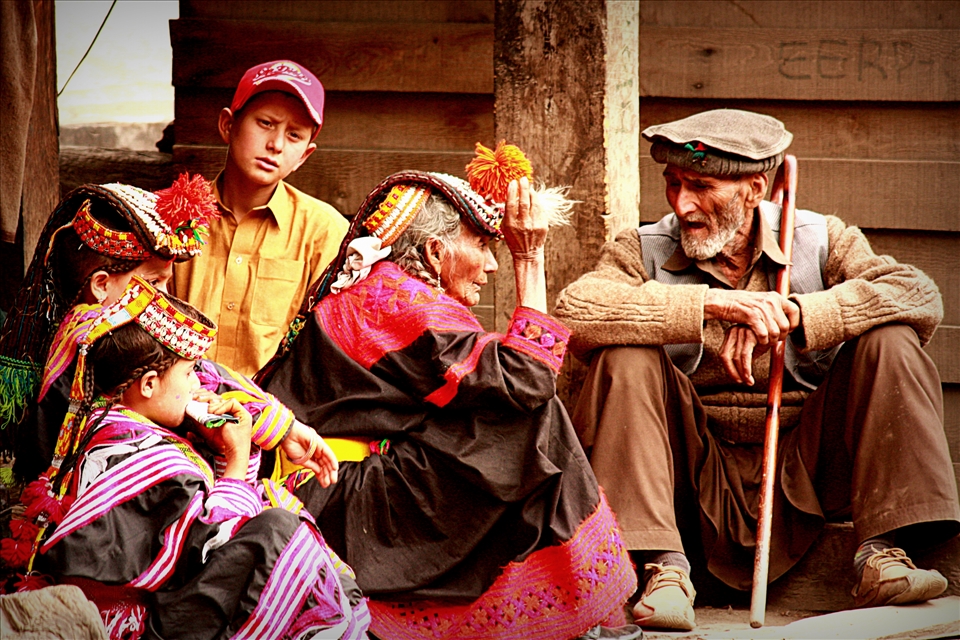
PAKISTAN | Monday, 24 November 2014 | Views [591] | View Smaller Image
As the day's festivities draw to a close, an elderly Kalash couple surrounded by grandchildren sit on the verandah of their home for a chat. They may be reminiscing about better days, when they were younger, their numbers greater - in the 1951 census of Pakistan, the Kalash population was recorded at 10,000, which by 2012 had dropped to 3,700. They may be ruing the safety of their community, which not only faces pressure to assimilate from their Muslim neighbors, but has also been threatened by the militant Pakistani Taliban.
They may be lamenting the gradual loss of their oral traditions. Most Kalash children today go to public schools, where they learn Urdu, the national language of Pakistan. The elders, however, only speak the native Kalasha, according to some scholars the closest modern tongue to Ancient Sanskrit.
Although the Pakistani government has applied for UNESCO World Heritage status for the Kalash people, one wonders how long this fabled community can hold together. How much longer can they can preserve their ancient ways, their secrets, thus far protected by the forbidding Hindu Kush, dating to a time and place that only exists in legend?